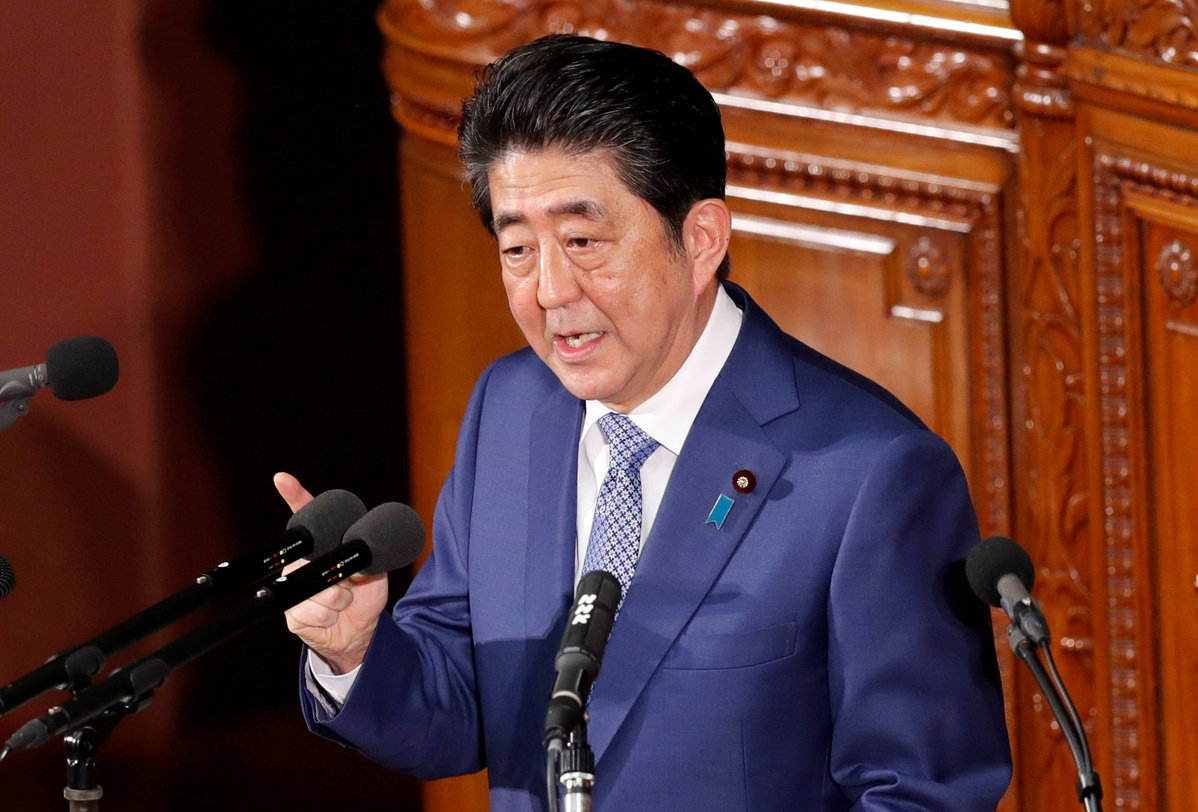Abe calls for debate over Constitution


TOKYO - Japanese Prime Minister Shinzo Abe urged political parties to advance debate on amending Japan's Constitution while calling for friendly ties with China, on the first day of a 150-day regular session convened on Monday.
In his policy address on the first day of the session, the Japanese leader referred to the Constitution as narrating the future shape of the country.
"We will be creating our nation, looking ahead 50 years or 100 years. It is the Constitution that narrates the shape and ideal form of the country," Abe said of the politically and socially divisive issue.
He called on all parties to formulate structured plans on the topic and for debate on the issue, which, if it were to come to fruition, would be the first-ever post-war amendment to the Constitution since it took effect in 1947.
For Abe to achieve his career-goal of amending the supreme law, specifically a key war-renouncing clause that restricts the activities of Japan's Self-Defense Forces, a two-thirds majority would be required in both chambers of the parliament and a simple majority in a national referendum thereafter.
On points of diplomacy, Abe described Japan and China as being "inseparable" and said he "will seek to meet the expectations of the international community by developing friendly relations with China in a stable manner".
Abe said that with China's Belt and Road Initiative in mind, Japan will cooperate with China on Asia's growing infrastructural needs.
With this year marking the 40th anniversary of the signing of the Japan-China Peace and Friendship Treaty, the Japanese leader pledged to realize reciprocal visits by him and Chinese President Xi Jinping "as soon as possible".
Abe also said he hoped to hold a trilateral summit including the Republic of Korea with the aim of deepening relations for a new era.
In his address, Abe also reiterated the Japan-US alliance as being the cornerstone of Japan's diplomacy and security, while stating that over the past year his relationship with US President Donald Trump had been one of personal trust.
In terms of domestic issues, Abe said labor reforms were front and center in terms of governmental action points, as were measures to combat the nation's aging and shrinking society, phenomena he described as a "national crisis".
With revenue from a planned consumption tax hike slated for October next year, the prime minister said Japan's social security system would be overhauled to benefit all sections of society, including the younger generations with the introduction of largely free preschool education.
XINHUA

































